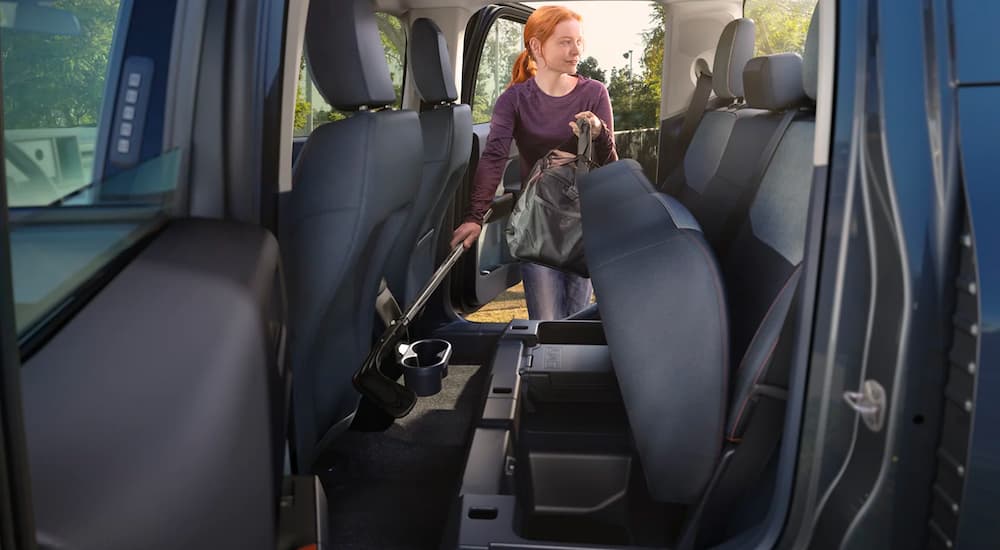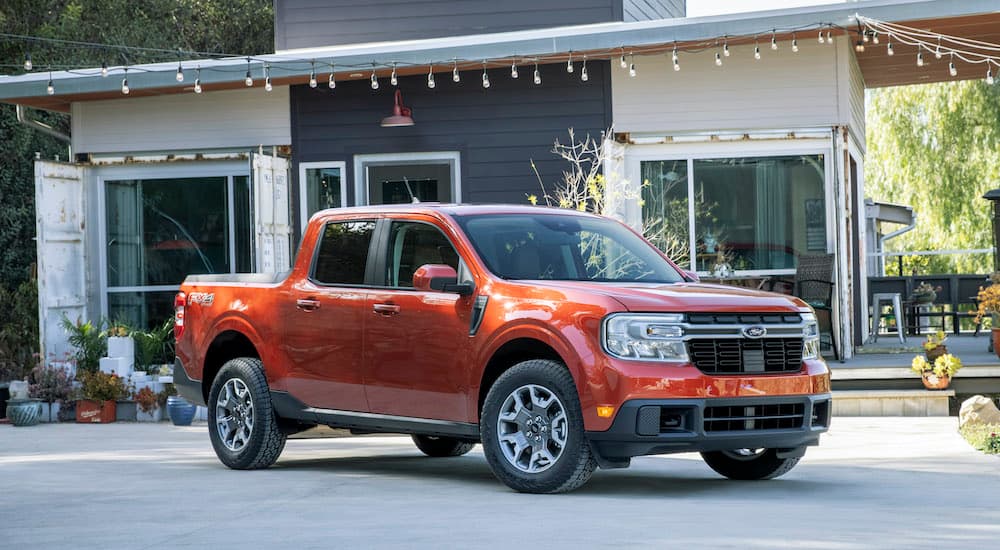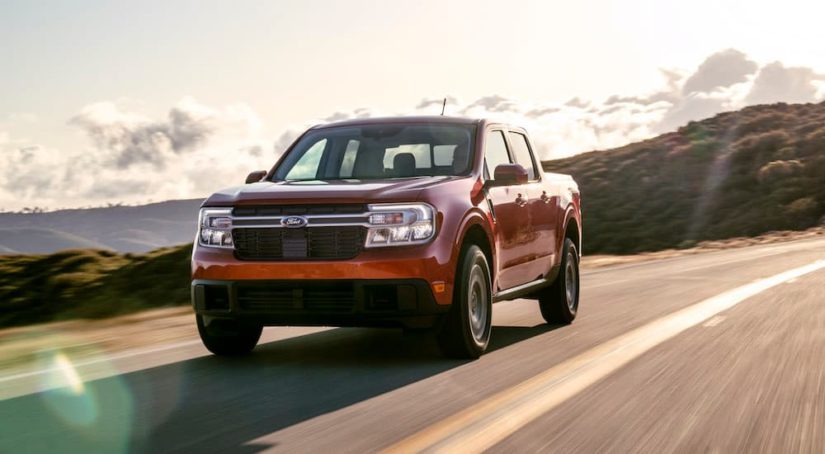When you’re living and commuting in places like New York, you’re most likely spending, on average, 30 minutes to over an hour one way to commute to work – that’s a long time! And with the ever-changing gas prices, that can become pretty painful on your wallet. Most of us commuters are now looking into fuel-efficient vehicles to save on that overwhelming gas expense, so we can put aside our hard-earned money for the more enjoyable things in life. I don’t know about you, but even with unpredictable gas costs, I still don’t want to give up comfort when it comes to my commute. Fortunately, there are so many eco-friendly models available today -including trucks- that we are able to choose something to better fit our lifestyle. Don’t just take my word for it; check out your local Ford Maverick dealer to see what this fuel-efficient truck has to offer.
Most vehicle manufacturers offer economical options, and Ford currently has fuel-efficient vehicles for almost every lifestyle. They have hybrid and electric options, and with more and more green models being announced, it’s almost a guarantee that there’s an eco-friendly vehicle for everyone, from the full-size electric Ford F-150 Lightning to the more compact Maverick hybrid truck or the Ford Escape hybrid to the Explorer hybrid SUV options. No matter what you’re looking for, you should be able to find a vehicle to help save on your fuel costs while continuing to keep your daily commute enjoyable. Now the question is: how do you choose which fuel-efficient vehicle is best for you?
From Hybrid to Plug-In Hybrid to Electric: How to Choose
Who would’ve thought there were so many options for fuel efficiency? Originally we only had to choose from eco-friendly or gas-hog, but not anymore. Now we have multiple powering options as well as different vehicle types to choose from within the powering options. The first step in finding your next commuter vehicle is learning the car lingo.
Depending on how fuel-efficient you want your vehicle to be, there are different motor options other than gas only. There are currently three categories for the electric line-up: hybrid, plug-in hybrid, and electric. Hybrid vehicles still offer 100% gasoline-fueled engines but also contain electric motors with batteries that assist in powering the vehicles simultaneously. The battery that powers the electric motor doesn’t need an external power source like its sister version – the plug-in hybrid – because it self-charges while the vehicle is braking and stores that energy while at rest, so it’s ready to help save you on gas use when in motion. So, if you’re new to electric vehicles and are in doubt about jumping right into an electric-only model, hybrid is the way to go.
Plug-in hybrids, similar to the original hybrid versions, are also gasoline and electric-powered, but they have larger batteries. This larger battery allows for the vehicle to run primarily on electric power with a full charge while the gasoline engine stays dormant. Once the charge drains, the vehicle switches over to running on gasoline. Since the plug-in hybrids act similarly to the electric-only vehicles, it does need to be plugged into an external power source for charging.
The electric-only vehicles are exactly that: electric. They run solely on an electric engine and battery pack that needs to be charged externally -similar to the plug-in hybrids. Since electric vehicles do not need any gasoline or other liquid fuel to power them, they emit no type of exhaust, making them not only fuel-efficient but good for the environment as well by not producing any air pollutants while driving. All-electric versions have great MPGe (miles per gallon of gasoline equivalent), some better than others depending on the class and model vehicle, which brings you to the next step in choosing your eco-friendly commuter.

Learn Which Vehicle Class Suits Your Lifestyle
Any car buying journey comes with a myriad of decisions to make. When you’re on the hunt for fuel-efficient options, it’s no different. Once you have a powering option preference nailed down, it’s time to figure out what class vehicle will best suit your needs. Cars, SUVs or crossovers, and trucks are the main vehicle options, though you still can get a minivan if you need something good for the family.
The general and most familiar class of vehicles is cars. A car like the Ford Fusion Hybrid model is ultimately great for commuting and traveling on well-maintained roads. They are compact enough for easy maneuvering through the city while providing great gas mileage due to their smaller engine size. Cars also offer an abundance of styles to choose from: whether you’re looking into a sedan to help carry passengers or cargo, a hatchback which may offer slightly more cargo space due to the upwards opening door for the trunk, a convertible which has an open top for the adventurers who prefer the wind blowing through their hair, or even a station wagon which offers great passenger and cargo space with its longer body style. These options make it much easier to find something suitable for your preferences in both statistics and style.
Trucks are primarily recognized for having an open bed rather than a trunk for cargo space and typically offer less interior space than cars and SUVs. Luckily, in today’s market, the cabs are being designed to be more spacious for comfort and passenger capacity – like the Ford Maverick Hybrid – allowing trucks to appeal to a wide range of consumers. Trucks are also known for their durability, stemming from the frame design that allows for more flex ability and their power derived from the engine size. Both the flexibility and the power assist in a truck’s functionality to go off-roading, all-weather driving, as well as its towing and hauling capabilities.
SUVs and crossovers are a good combination of both a truck and a car. These have great passenger and cargo space for any adventure, have the capabilities for minimal towing and off-roading, but also provide the fuel efficiency of a car. SUVs and crossovers like Ford’s Escape Hybrid or Explorer have recently become more common on the roadways due to their convenience and functionality that seems to resonate well with drivers.

Concluding Your Fuel-Efficient Buying Experience
With the average amount of time people spend commuting, whether for work or for play, in cities or even on a drive through the country, there shouldn’t be a price to pay when looking for a vehicle to save you on your gas expense. Our wallets already pay the price when purchasing a new vehicle; why should our comfort level suffer as well? Thankfully, it doesn’t have to anymore.
With the variety of automobile options available today, finding a budget-friendly, fuel-efficient vehicle is a lot easier than it used to be. No matter the shape, size, or capabilities you are looking for, there’s an eco-friendly model for you that won’t break the bank nor your commute’s comfort. From hybrid trucks like the 2022 Ford Maverick that now offer an abundance of interior space for passengers to compact electric cars that still give you plenty of legroom with some cargo space and MPGe that’ll make your wallet sing, affordability can still mean bliss.



